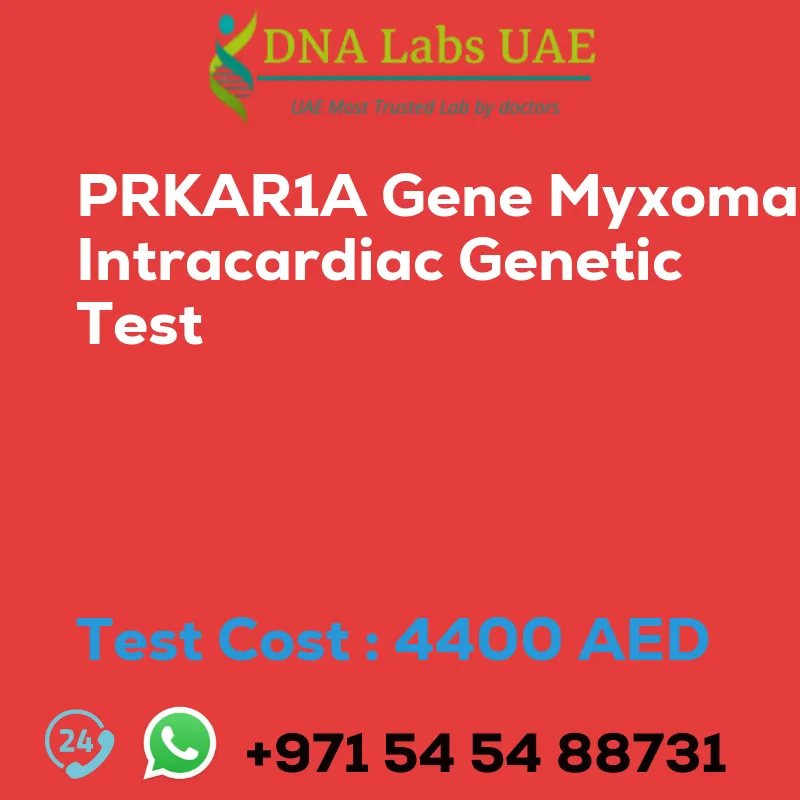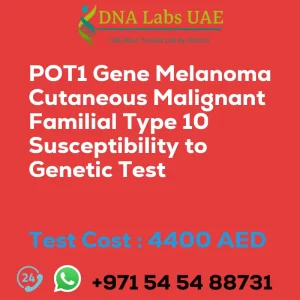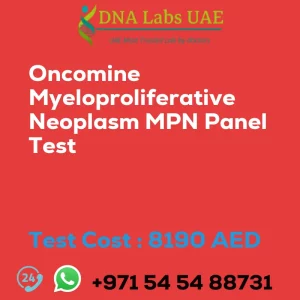PRKAR1A Gene Myxoma intracardiac Genetic Test
Components
- Test Name: PRKAR1A Gene Myxoma intracardiac Genetic Test
- Price: 4400.0 AED
- Sample Condition: Blood or Extracted DNA or One drop Blood on FTA Card
- Report Delivery: 3 to 4 Weeks
- Method: NGS Technology
- Test type: Cancer
- Doctor: Oncologist
- Test Department: Genetics
Pre Test Information
Clinical History of Patient who is going for PRKAR1A Gene Myxoma, intracardiac NGS Genetic DNA Test. A Genetic Counselling session to draw a pedigree chart of family members affected with PRKAR1A Gene Myxoma, intracardiac NGS Genetic DNA Test gene PRKAR1A.
Test Details
The PRKAR1A gene is associated with a condition called myxoma, which refers to the presence of benign tumors in the heart. These tumors can occur in various parts of the heart, including the atria, ventricles, or valves. Myxomas are typically sporadic, meaning they occur by chance and are not inherited. However, in some cases, myxomas can be caused by mutations in the PRKAR1A gene.
To detect mutations in the PRKAR1A gene and diagnose myxoma, a genetic test called Next-Generation Sequencing (NGS) can be used. NGS is a high-throughput sequencing technology that allows for the simultaneous analysis of multiple genes. In the case of myxoma, the NGS test would specifically target the PRKAR1A gene to identify any mutations or genetic variants that may be present.
The NGS genetic test for PRKAR1A gene myxoma can be performed using a blood sample or a tissue sample from the affected area of the heart. The sample is then processed in a laboratory, where the DNA is extracted and sequenced. The sequencing data is then analyzed to identify any mutations or genetic variants in the PRKAR1A gene that may be associated with myxoma.
This genetic test can help confirm a diagnosis of myxoma and determine if the condition is caused by a mutation in the PRKAR1A gene. It can also be used for genetic counseling and to assess the risk of passing on the condition to future generations. Additionally, NGS can provide valuable information for personalized treatment options and management strategies for individuals with myxoma.
| Test Name | PRKAR1A Gene Myxoma intracardiac Genetic Test |
|---|---|
| Components | |
| Price | 4400.0 AED |
| Sample Condition | Blood or Extracted DNA or One drop Blood on FTA Card |
| Report Delivery | 3 to 4 Weeks |
| Method | NGS Technology |
| Test type | Cancer |
| Doctor | Oncologist |
| Test Department: | Genetics |
| Pre Test Information | Clinical History of Patient who is going for PRKAR1A Gene Myxoma, intracardiac NGS Genetic DNA Test. A Genetic Counselling session to draw a pedigree chart of family members affected with PRKAR1A Gene Myxoma, intracardiac NGS Genetic DNA Test gene PRKAR1A |
| Test Details |
The PRKAR1A gene is associated with a condition called myxoma, which refers to the presence of benign tumors in the heart. These tumors can occur in various parts of the heart, including the atria, ventricles, or valves. Myxomas are typically sporadic, meaning they occur by chance and are not inherited. However, in some cases, myxomas can be caused by mutations in the PRKAR1A gene. To detect mutations in the PRKAR1A gene and diagnose myxoma, a genetic test called Next-Generation Sequencing (NGS) can be used. NGS is a high-throughput sequencing technology that allows for the simultaneous analysis of multiple genes. In the case of myxoma, the NGS test would specifically target the PRKAR1A gene to identify any mutations or genetic variants that may be present. The NGS genetic test for PRKAR1A gene myxoma can be performed using a blood sample or a tissue sample from the affected area of the heart. The sample is then processed in a laboratory, where the DNA is extracted and sequenced. The sequencing data is then analyzed to identify any mutations or genetic variants in the PRKAR1A gene that may be associated with myxoma. This genetic test can help confirm a diagnosis of myxoma and determine if the condition is caused by a mutation in the PRKAR1A gene. It can also be used for genetic counseling and to assess the risk of passing on the condition to future generations. Additionally, NGS can provide valuable information for personalized treatment options and management strategies for individuals with myxoma. |








